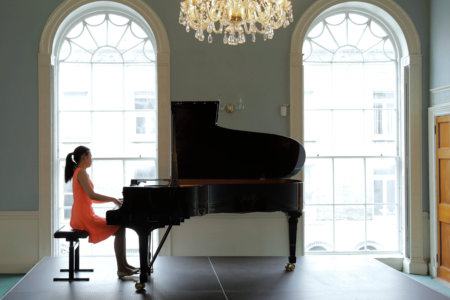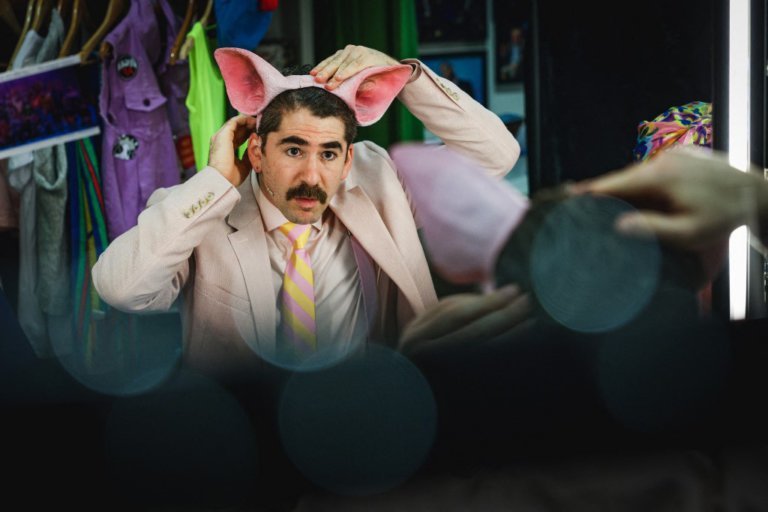
As a brown Asian kid, telling your parents you want to pursue a career in the performing arts is not always easy. If you’re lucky, this can merely be an awkward or mildly unpleasant announcement.
If you’re not as lucky, it can be downright terrifying.
In many cases, this is the most unwelcome sentiment: “How could you possibly stray from the career trinity: doctor, lawyer or engineer (in some more open-minded circles, architecture)?”
Then the next inevitable question: “Can you even achieve anything or be successful if you’re in the performing arts?”
After you’ve listed prominent figures from Bollywood or cited all the K-pop superstars, here’s another trendsetter to help you prove that the answer to this question is a resounding yes.
Indhu Rubasingham has just been announced as the first female leader of the National Theatre in London.
This iconic theatre space has a history that dates back to 1963. It includes three theatres in its building located along the River Thames.
Every year, it stages about 20 plays and musicals yearly and employs about 900 full-time staff.
Past artistic directors include Laurence Olivier, Peter Hall, Richard Eyre, Trevor Nunn, Nicholas Hytner and Rufus Norris.
While they are all legends, they are also all white men. So, not only is Rubasingham the first woman, but she is also the first person of colour.
The theatre veteran will also share the role of chief executive with Kate Varah, the theatre’s current executive director.
(If holding two prominent positions of power in one of the most iconic cultural hubs in the country does not impress Asian parents, then we do not know what will.)
View this post on Instagram
Born to Sri Lankan Tamil parents in the northern English city of Sheffield, Rubasingham was expected to become a doctor.
Still, the stage called her name, and after a work experience placement at the Nottingham Playhouse, she went on to study drama at Hull University.
Rubasingham was then the trainee director at the Theater Royal Stratford East in London and Kiln Theatre’s artistic director for 11 years.
One can’t help but salute her groundbreaking achievement.
Still, the arts are a notoriously competitive and difficult area to make it big. This makes it all the more difficult to convince your worrying parents — which can explain why theatre and the other performing arts aren’t the top fields of study among international students.
In 2022/23, the top four fields of study among international students in the US were:
- Maths and computer science 23%
- Engineering 19%
- Business and management 15%
- Social sciences 8%
Many don’t know that just because you have a degree in performing arts doesn’t mean that there’s only one career pathway open to you.
A degree in performing arts does not limit you
If you look into the range of skills you could develop with a performing arts degree, you would be amazed at its versatility.
Here are some of the skills Prospects outlines that you need to succeed in the performing arts:
- Confidence and communication skills
- The ability to network and market yourself
- Resilience, self-discipline and stamina
- An analytical mind and creative problem-solving skills
- Versatility
- Curiosity
- Global awareness
These skills can be applied to many jobs out there.
Leah Heathcote-Osburn, who has a performing arts degree and now is the Dual Branch Manager II and Assistant Vice President, is proof.
She outlines in a LinkedIn article how this degree gives you many transferable skills:
- Ever performed as a soloist? Add Presenting to your skillset. If you’ve performed in a named role with dialogue, you could also add Public Speaking.
- Directed an ensemble? Were you a section leader or first chair? Great! You have experience in Directing Work and Leadership.
- Performed in an ensemble? Play an instrument with multiple musical lines performed at once? You’re probably a pretty good Collaborator and Multitasker who Manages Complexity.
- Do you teach individual or group performance classes? Stellar! You have experience in Teaching, Coaching, and Development. Bonus points if your degree is in Education.
It is all about how you can adapt your skills for the job you want, so why not go for that degree in performing arts that excites you?

Actors from Mongol Khan Company, Mongolias leading theatre company, perform during the dress rehearsal of “Mongol Khan” at London Coliseum, in London, on November 17, 2023. Source: AFP
5 best universities to pursue a performing arts course
Royal College of Music
The Royal College of Music (RCM) is one of the world’s great conservatoires, training gifted musicians from all over the world for international careers as performers, conductors and composers.
Founded in 1882 by the then Prince of Wales (later Edward VII), the RCM has trained some of the most important figures in British and international music life, including:
- Composers such as Holst, Vaughan Williams and Britten
- Conductors such as Leopold Stokowski, Sir Colin Davis, and Sir Roger Norrington
- Singers such as Dame Joan Sutherland, Sir Thomas Allen and Alfie Boe; and
- Instrumentalists such as James Galway, John Lill, and Natalie Clein.
Conservatoire national supérieur de musique et de danse de Paris (CNSMDP)
Created in 1795, the National Superior Conservatory of Music and Dance of Paris is the first French public establishment for the transmission of musical and choreographic arts.
Its numerous international partnerships and the reputation of its professors and former students have cemented the Convervatory’s reputation as a top-tier performing arts institution.
Situated within the Philharmonie de Paris and the Cité de la Musique, La Villette and the National Dance Center (CND), the Conservatory pursues an ambitious policy of creation, research, and openness to the public, thanks to a rich programme of concerts, dance shows, and conferences, courses, and conferences which are free and open to all.

Royal Academy of Music is a place for new musicians to connect, collaborate and create. Source: Royal Academy of Music/Facebook
Royal Academy of Music
Founded in 1822, the Royal Academy of Music is the UK’s longest-standing conservatoire and the second oldest in the world. For 200 years, the Academy has been at the forefront of musical performance and education.
Here, you’ll find your voice. From undergraduate to doctoral level, renowned teachers help students turn aspiration into achievement. Artistic risk-taking and professional reality are embedded into all aspects of academy life, meaning graduates leave ready for a life in music.
Here, you can choose from over 20 musical disciplines as well as pre-professional, undergraduate and postgraduate musical training programmes.
The mdw – University of Music and Performing Arts Vienna
The mdw – University of Music and Performing Arts Vienna is one of the world’s largest and most renowned universities for the performance arts of music, theatre and film.
As an international leader for studies in music and other performing arts along with related academic disciplines since 1817, the university currently provides training to over 3,000 students from over 70 countries in 105 degree programmes and 68 supplementary programmes run by 24 departments.
Each year, the institution presents over 1,300 artistic, scholarly and scientific events, making it Austria’s largest organiser of cultural events.
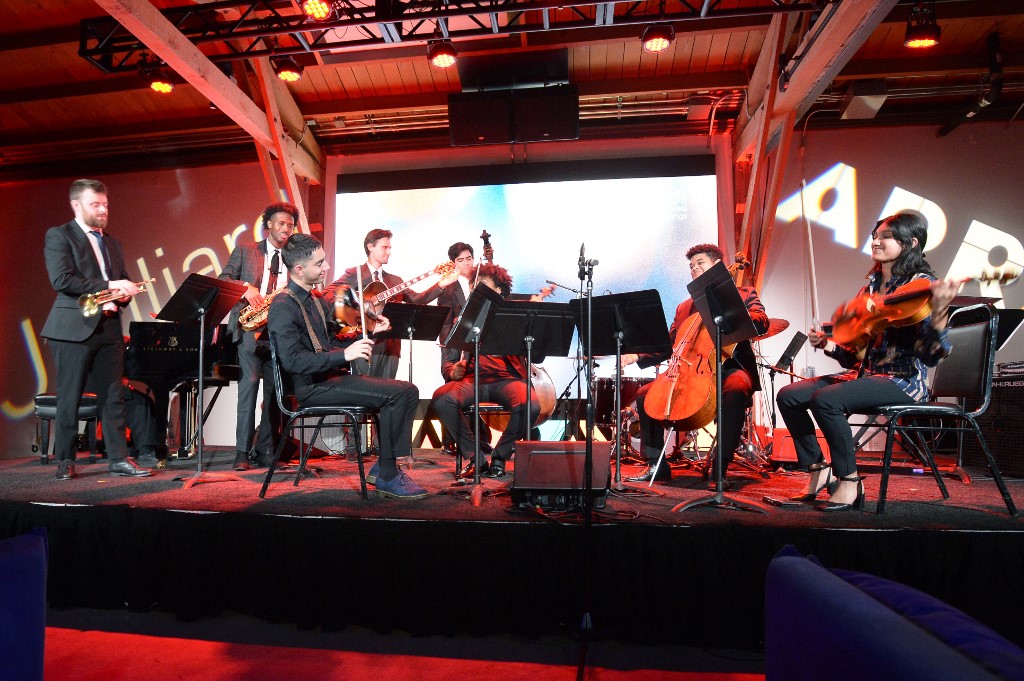
Juilliard Students perform onstage during an evening of music curated by award-winning composer and Juilliard alumni Kris Bowers presented by Juilliard and ARRAY at ARRAY HQ. Source: AFP
The Juilliard School
Juilliard was founded in 1905 as the Institute of Musical Art by Dr. Frank Damrosch, the godson of Franz Liszt and the head of music education for New York City’s public schools.
Damrosch was convinced that American musicians should not have to go abroad for advanced study and created the Institute as an American music academy that would provide an educational experience comparable to that of the established European conservatories.
With the initial enrollment figures nearly five times what was expected, the institute quickly outgrew its original home at Fifth Avenue and 12th Street and moved to new quarters near Columbia University in 1910.
Today, the mission of The Juilliard School is to provide the highest calibre of artistic education for gifted musicians, dancers, and actors globally so that they may achieve their fullest potential as artists, leaders, and global citizens.
Royal Conservatoire of Scotland (Formerly Royal Scottish Academy of Music and Drama)
The Royal Conservatoire of Scotland (RCS) is the nation’s centre of excellence for performing and production arts training. It specialises in vocational education in dance, drama, music, production and screen.
Currently, approximately 900 students are pursuing degrees at RCS across all of our art form specialisms.
RCS works in partnership with prestigious education institutions, including the University of Glasgow, the University of St Andrews and the University of Edinburgh.
They also collaborate with national companies, including the National Theatre of Scotland and BBC Scotland, to provide students with the best learning experiences the Scottish landscape offers.
Based in the heart of Glasgow, RCS is a busy performing arts venue; it hosts over 500 public performances each year and welcomes audiences of over 40,000 people to its Renfrew Street campus.
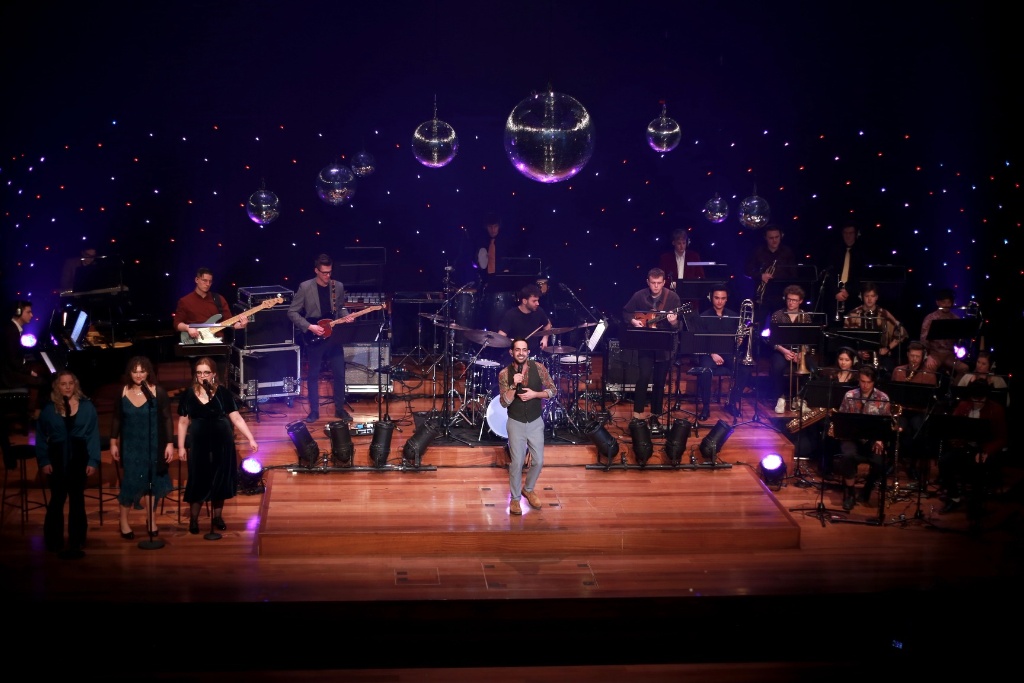
Guildhall School of Music and Drama is a vibrant, international community of musicians, actors and production artists in the heart of the City of London. Source: Guildhall School of Music & Drama/Facebook
Guildhall School of Music and Drama
Ranked as one of the top 10 performing arts institutions globally, Guildhall School of Music and Drama is a leader in creative and professional practice, which promotes innovation, experimentation, and research.
Here, students undergo a transformative journey of training in music, acting and production arts. While the process can be intense, the craft, creativity and learning you receive will empower you to develop your unique potential.
Curtis Institute of Music
The Curtis Institute of Music educates and trains exceptionally gifted young musicians for careers as performing artists on the highest professional level.
As one of the world’s leading conservatories, Curtis is highly selective, with an enrollment of about 165.
In this intimate environment, students receive personalised attention from a celebrated faculty.
A busy schedule of performances is at the heart of Curtis’s distinctive “learn by doing” approach, which has produced an impressive number of notable artists since the school’s founding in Philadelphia in 1924.
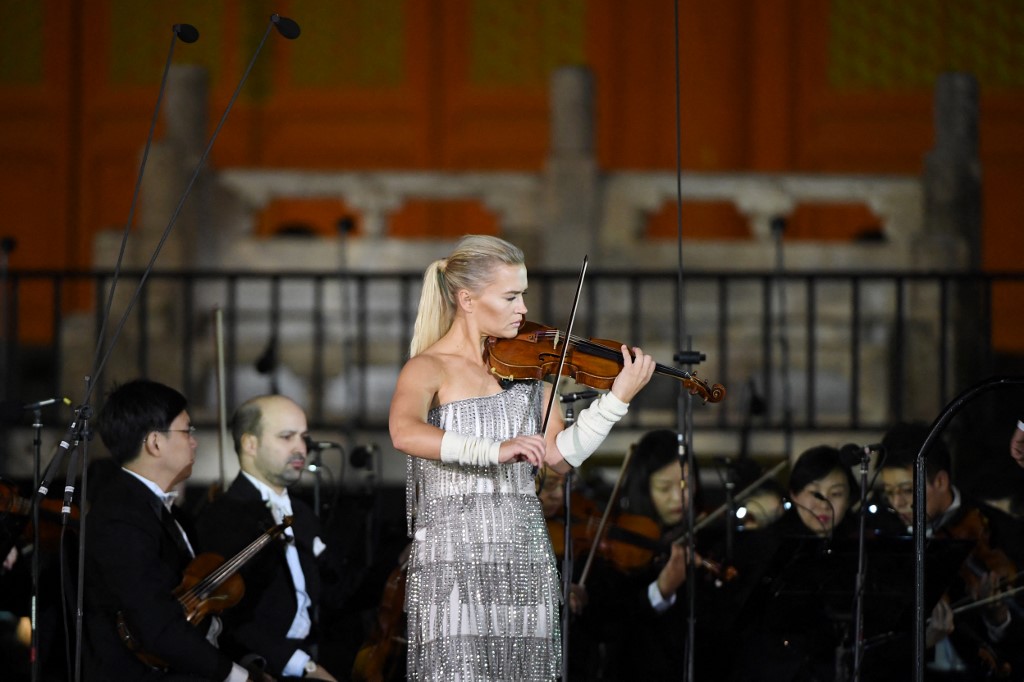
The Norwegian Academy of Music (NMH) is a leading artistic and academic university with Norway’s largest educational environment in music. Source: AFP
Norwegian Academy of Music
The Norwegian Academy of Music offers higher education in music and trains music therapists, instrumentalists, singers, church musicians, music educators, conductors, composers, music technologists, and piano tuners.
An education here provides a foundation for a professional music career and enables you to make relevant choices later in life.
In this way, NMH contributes to the local economy by becoming a hub where everyone can live a strong and viable music life in the future.
Moscow State Conservatory P. I. Tchaikovsky
The Moscow Conservatory is a higher musical education institution in Moscow and the second oldest conservatory in Russia after St. Petersburg Conservatory.
Along with the St. Petersburg Conservatory, it is one of the leading music universities in the country and one of the most prestigious in the world.
It was co-founded in 1866 as the Moscow Imperial Conservatory by Nikolai Rubinstein (brother of the famous Russian pianist and composer Anton Rubinstein, who founded the St. Petersburg Conservatory in 1862) and Prince Nikolai Petrovitch Troubetzkoy.










